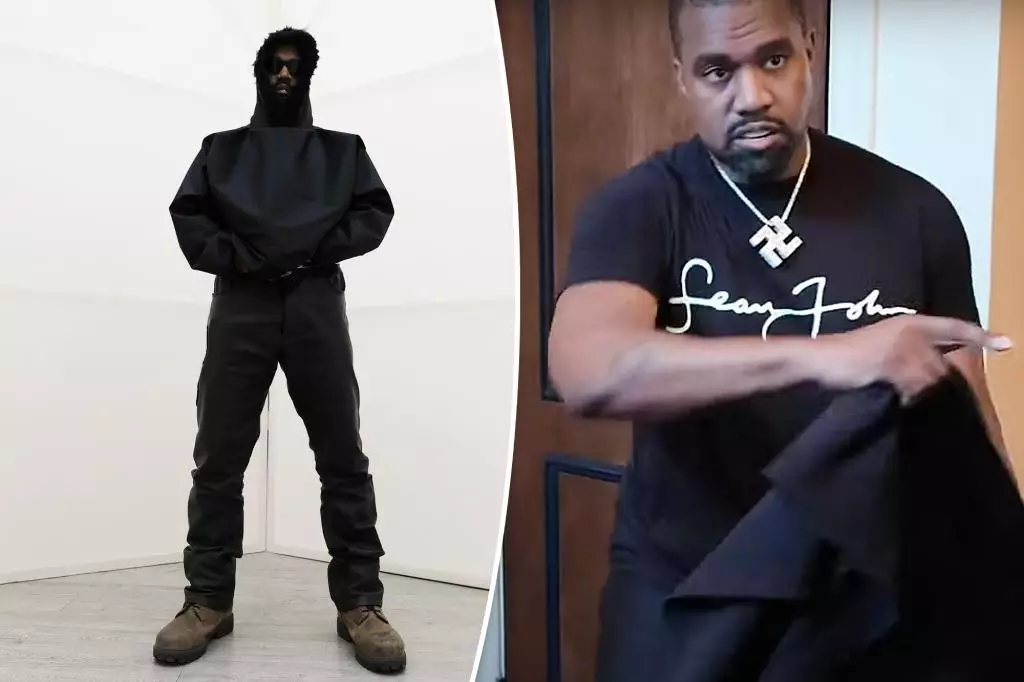In a moment that many might have deemed unfathomable just months ago, Kanye West, now known as Ye, has publicly declared his intention to step away from the antisemitic sentiments that have marred his recent history. This proclamation came via a series of posts on social media platform X, where Ye stated unequivocally, “I am done with antisemitism.” Such statements resonate with complexity, evoking feelings of skepticism and cautious hope among fans and critics alike.
The artist’s change of heart raises essential questions about personal accountability and the authenticity of public apologies. Ye’s history is rife with inflammatory comments and actions that many view as hateful. His claim of loving “all people” and seeking forgiveness seems almost disingenuous when placed in the context of his past provocations. The trajectory from hate speech to appeals for love is not one that can be navigated so easily, and many are understandably wary of this newfound perspective.
Motivations Beneath the Surface
Interestingly, in his recent statements, Ye attributes his change in attitude to personal motivations tied to his family, citing his relationship with his children and the pain of custody battles with ex-wife Kim Kardashian as catalysts prompting this epiphany. “I simply got a FaceTime from my kids and I wanna save the world again,” he wrote, showcasing an emotional pivot that many parents might relate to. Yet, it begs the question: Is a desire to reconnect with his children and redeem his tarnished public image strong enough to foster genuine remorse?
The timing of these statements, coinciding with tragic incidents of violence against the Jewish community, complicates his narrative further. The murder of peace activists Yaron Lischinsky and Sarah Milgrim outside a Jewish Museum unfolds against a backdrop of escalating antisemitism—a climate that makes Ye’s comments not only timely but painfully ironic. The juxtaposition of Ye’s recent proclamations with his earlier incendiary statements about Jewish people complicates this narrative, as one cannot help but wonder if this is a fleeting moment of clarity or merely another chapter in an ongoing saga of controversy.
Community Reactions: Healing or Hypocrisy?
The response from organizations such as the Anti-Defamation League has been one of caution. In their eyes, Ye’s sudden pivot appears to mirror past cycles of contrition followed by recidivism into harmful rhetoric. An ADL spokesperson articulated this sentiment succinctly, asserting, “Sorry, but we’re not buying it.” This skepticism is not unwarranted; a history of inflammatory remarks—including a notorious admiration for figures like Adolf Hitler and derogatory statements about Jewish individuals—casts a long shadow over any attempts at an honest reconciliation.
Moreover, the Jewish community is still grappling with the implications of Ye’s earlier statements and actions, which have been deeply hurtful and damaging. In a time when antisemitism is rising globally, even a seemingly positive assertion may feel like an inadequate response to a history of vitriol.
Cultural Implications: Artistry vs. Accountability
Ye’s artistry has always danced on the fine line between genius and chaos, provoking reactions from admiration to disdain. His ability to evoke strong emotions through his music and public persona is what makes his latest declaration particularly fascinating and problematic. Can we separate the artist from the man? Are the themes of redemption and forgiveness that permeate his artistic ventures applicable to his social persona?
This discussion exposes a dichotomy within the cultural landscape. The notion of forgiveness is beautiful, yet it is also complex when intertwined with repeated patterns of harmful behavior. As the world grapples with the balance between supporting the transformative journey of an artist and holding individuals accountable for their actions, Ye’s situation serves as a litmus test for our collective response.
Is Change Possible? A Call for Genuine Reflection
Ultimately, Ye’s recent declarations serve as a springboard for deeper discussions about the potential for personal transformation. While the world may harbor doubts about the sincerity of his statements, the prospect of real change is a conversation worth having. True transformation requires more than a series of social media posts; it demands sustained actions that align with professed beliefs.
As Kanye West stands at this crossroads, the challenge remains: will he choose to embody the love and peace he now claims to advocate, or will this merely be a transitory moment in a larger cycle of provocation? His journey thus far makes it abundantly clear that the answers to these questions will not only define his legacy but may also influence broader cultural dialogues surrounding accountability and redemption.

